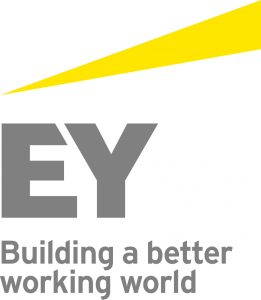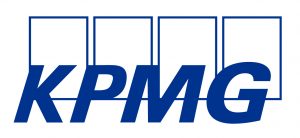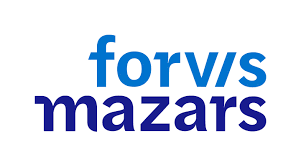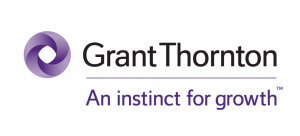
Certificate in VAT 2025
This on-demand programme has a CPD Option at €995 to gain 19 CPD hours.
If you wish to book this, please visit our store page.
| Date & Time | Module | Tutor |
|
On-Demand Module Available on Blackboard Learn |
VAT in a European Context
Following this module participants will be able to:
|
Lee Squires
|
|
Module 1 Thurs 4 Sept 16.00 – 18.00 |
Cross-Border Supplies of Goods
This module will support participants to:
|
Barry McNamara
|
|
Module 2 Thurs 11 Sept 16.00 – 18.00
|
Cross-Border Supplies of Services
This module content will enable participants to:
|
Esther Adesanmi |
|
Module 3 Thurs 18 Sept 16.00 – 18.00 |
Taxable Amount and Taxable Persons
Having completed this module participants will be able to:
|
James Fox
|
|
Module 4 Thurs 25 Sept 16.00 – 19.00 |
VAT on Property Transactions
This module will equip participants to:
|
Ethna Kennon
|
|
Module 5 Thurs 2 Oct 16.00 – 18.00 |
VAT Deductibility, Rates and Exemptions
Following this module participants will be able to:
|
Kieran Ahern
|
|
Module 6 Thurs 9 Oct 16.00 – 18.00 |
VAT and Financial Services
Having completed this module participants will be able to:
|
Kim Clarke
|
| Workshop
Thurs 16 Oct 16.00 – 19.00 |
Integrated Case Study Workshop
This practical session will take participants through scenarios and case studies incorporating content from Modules 1-7. |
Marian Lee & Sylwia Lobodziec
|
Expert Tutor Bios
Esther Adesanmi is an assistant manager in Deloitte Ireland’s Indirect Tax team, with experience in advising on property transactions, providing strategic VAT advisory services to businesses across various industry sectors, ensuring compliance with Irish and EU VAT regulations and a rage of other areas of VAT. Esther is a qualified chartered accountant (ACA) and Chartered Tax Adviser (CTA) with strong background in VAT compliance and advisory. Esther has aided clients with preparing for Revenue interventions and disclosures, product rate reviews, navigating complex regulatory requirements, as well as providing supply chain and cross-border assistance.
Kieran Ahern is a Director in Forvis Mazars Indirect Tax team. He advises both domestic and international clients on VAT and RCT across a range of sectors, including local Authority and State Sector, Educational Bodies, Retail, Financial Services, Engineering and Technology, Property Development and Construction and Hotel, Hospitality and Tourism. He advises on the VAT and RCT aspects of property transactions, supply chain structures and business models, international trade, ecommerce transactions, setting-up in Ireland, VAT recovery optimization, Revenue audits and compliance processes. Kieran also contributes to the Irish Tax Institute’s VAT education programme. He has over 10 years’ experience specialising in VAT having previously spent a number of years working in general tax practice
Kim Clarke is a Tax Partner PwC Ireland’s indirect tax practice where she specialises in advising financial services clients on VAT matters across a range of sectors including Asset & Wealth Management, Banking, Private Equity and Real Estate. Kim is also a member of the Irish Funds Industry Association’s VAT working group.
James Fox leads the EY Indirect Tax practice in Munster, advising on all aspects of VAT-related taxes for a wide range of clients. He joined EY in 2015, having previously trained with KPMG in Dublin in VAT. James has extensive experience on national and international VAT consultancy assignments and he has assisted various clients in the course of Revenue audits and advises national and multinational companies operating in various sectors. James is a Chartered Tax Adviser (CTA) and is also a member of Chartered Accountants Ireland. James was also previously Chair of the Chartered Accountants Ireland Cork Society.
Ethna Kennon is a principal in KPMG Ireland’s Indirect Taxes – VAT, Customs and Excise group. She has over 20 years’ experience advising clients on Irish and international indirect tax issues across a range of sectors including; real estate, renewables and energy, retail, financial services, technology, and cross-border supply chains. She also lectures extensively on indirect tax matters for the Irish Tax Institute and other professional bodies.
Marian Lee is a seasoned VAT specialist with extensive experience in indirect taxation, compliance, and advisory services. With a deep understanding of VAT legislation and case-law combined with practical application, Marian has helped businesses navigate the challenges of complexity of dealing with the ever-changing VAT landscape. Currently working as a director at Grant Thornton, Marian has worked with a diverse range of clients, from SMEs to multinational corporations, advising on a wide range of topics such as mergers and acquisitions, financial services, property transactions, VAT reviews, Revenue disclosures and interventions. She is known for delivering insightful, practical guidance, breaking down complex VAT principles into clear, actionable strategies. Marian shares her expertise at seminars and training sessions, equipping professionals with the knowledge they need to manage VAT effectively. An associate of the Irish Taxation Institute and has a Bachelor of Arts from UCD, Marian also holds a professional certificate in Investment Fund Services from the Institute of Banking.
With over two decades of experience in VAT, Sylwia Lobodziec is a Director in Indirect Tax at Grant Thornton, where she advises a diverse portfolio of clients ranging from Irish SMEs to global multinationals. Since beginning their VAT career in 2004, Sylwia has held senior roles in EY, PwC, and in-house at a major multinational in the software and hardware sector, gaining deep expertise across all areas of VAT including financial services, property, and international supply chains. Passionate about the intersection of tax and technology, she has led ERP implementations, overseen complex compliance frameworks, and is a keen follower of VAT jurisprudence, particularly CJEU case law.
Barry McNamara joined RSM Ireland as Senior Manager in 2021 promoted to Director in 2023, and leads the indirect tax services team, which provides compliance and value-added tax advisory services in Ireland, to a global base of clients. Barry has specific expertise in; – Cross border supply chain structures, specifically in a post Brexit environment – VAT on Property transactions – VAT on due diligence assignments – VAT recovery optimization – VAT Compliance management. Prior to joining RSM, Barry worked both in practice and industry, where he spent the 7 years with PwC Ireland, having initially trained as an accountant in a small practice. In addition to practice roles Barry held senior VAT roles in US/European MNC’s in Ireland and the UK and has substantial amount of experience in managing and advising on indirect tax compliance, operational, accounting, and technical aspects on a cross functional and global basis. Barry is a Fellow of the Association of Chartered Accountants Ireland (FCCA), a Chartered Tax Adviser (CTA) and holds a certificate in Financial Services Taxation (Capital Markets & Securitisation and Leasing), awarded by the Irish Tax Institute. Barry is also a member of the Indirect TALC subcommittee
Lee Squires is a Partner and Head of Indirect Taxes in the Byrne Wallace Shields LLP tax team. He has over 19 years’ experience in Ireland and the UK in providing tax advisory services to leading private and public sector organisations, international corporations and financial institutions. He advises both domestic and international clients on VAT and indirect tax issues across a range of sectors, including financial services and investment management, real estate and construction, technology, health and life sciences, manufacturing and retail. Lee also advises on Stamp Duty, Customs Duty and international trade issues, Relevant Contracts Tax (RCT), and resolving disputes and litigation with Revenue across all taxes. Lee is also a regular speaker and writer on VAT and indirect tax issues and is a Solicitor in Ireland; England and Wales; and Northern Ireland.






